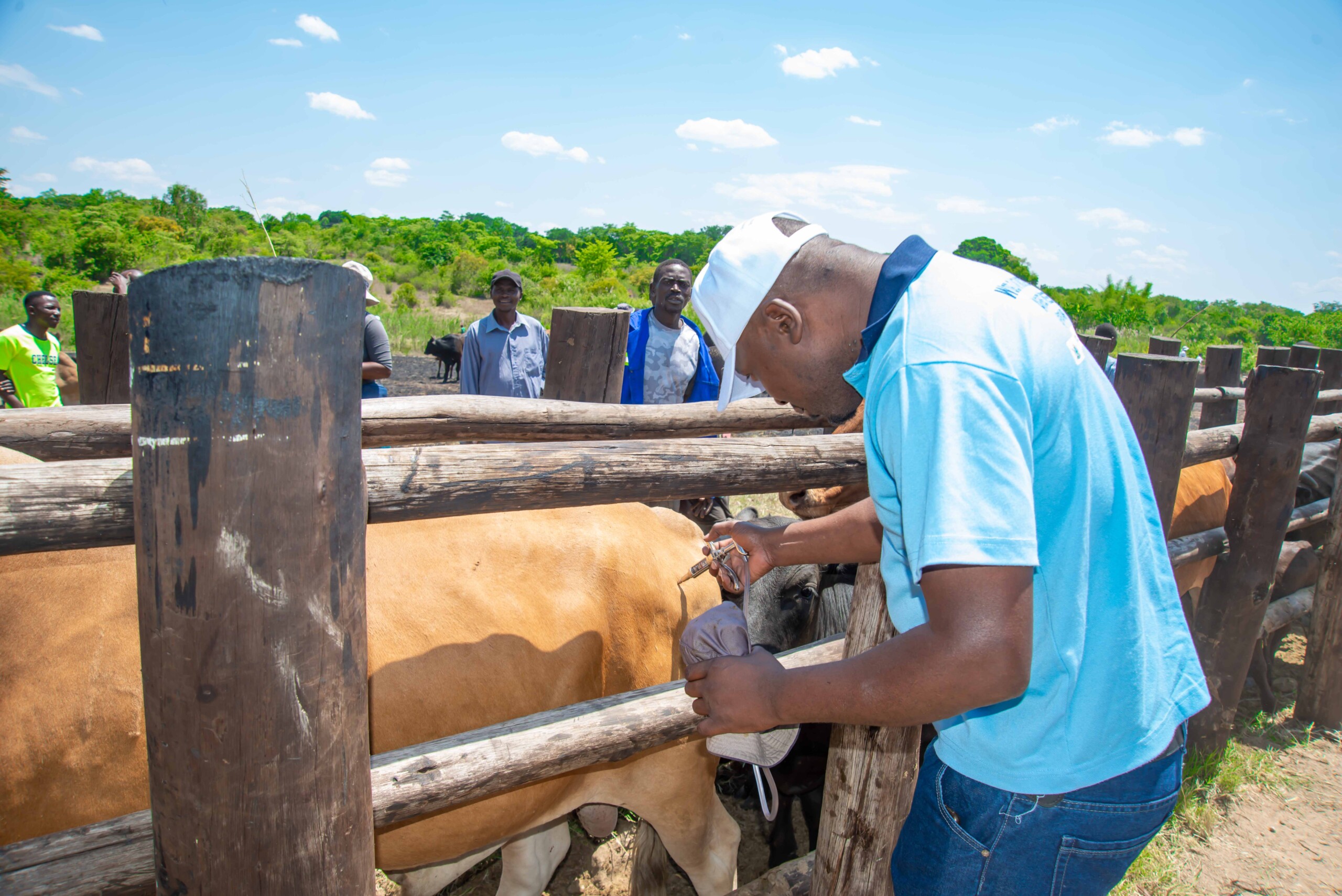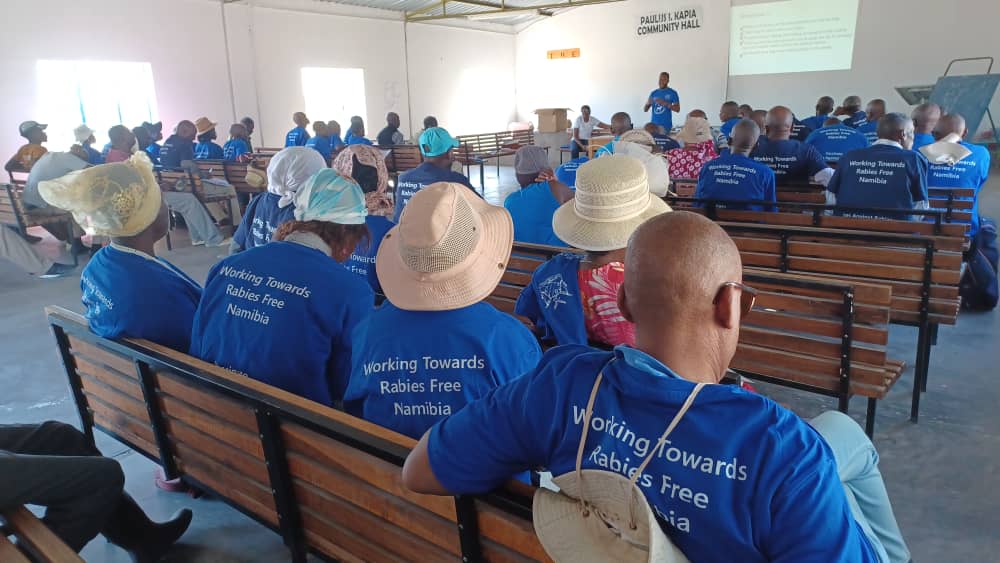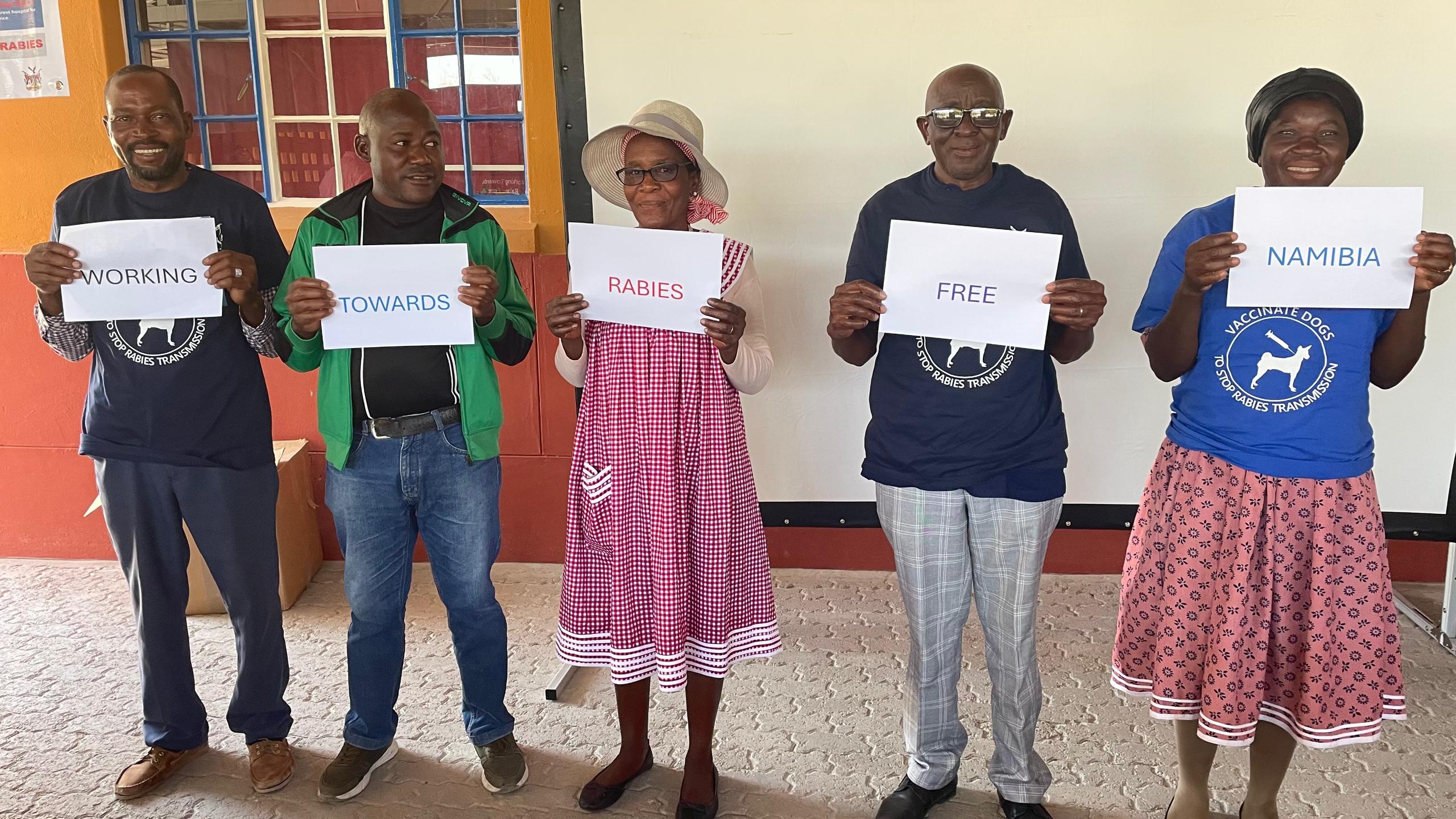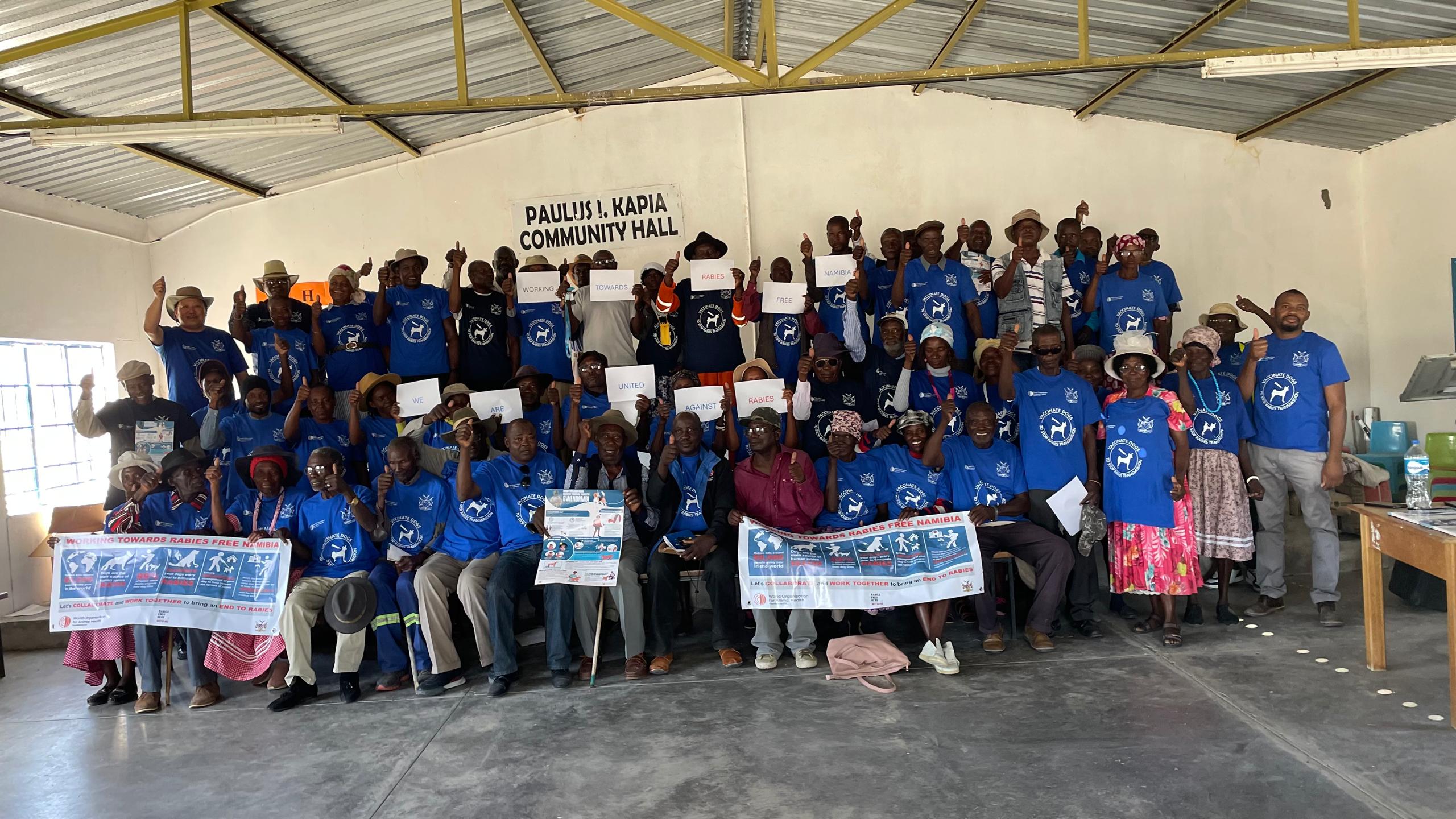
Community engagement is essential in rabies control programmes to foster community commitment and support for government interventions. It ensures identification of rabies hotspots, prioritising interventions, improving knowledge of the dog population and registration, and supporting dog vaccination campaigns to achieve high vaccination coverage. Community engagement also strengthens rabies surveillance and reporting systems to local and national authorities and promotes community ownership of programmes. Additionally, it increases public awareness of rabies, encourages early reporting and response to animal bite cases, and provides rapid response to dog bites, ultimately preventing human deaths due to rabies.
Notably, successful community-based rabies surveillance programmes in rural areas of Africa, Asia, and also in Haiti have identified additional rabies exposures and bite victims, referring them for appropriate medical care and thus averting potential human rabies deaths. The ongoing fight to eliminate dog-mediated rabies by 2030 would benefit significantly from more active community involvement in surveillance, prevention, and control efforts. Investing in rabies control at the community level will save lives and strengthen a resilient, One Health-based health system capable of addressing other health threats at the animal-human-environmental interface, including pandemics.
Community members during the meeting. Picture (c) T. Tenzin (woah) 2024. Membres de la communauté pendant la réunion. Photo (c) T. Tenzin (omsa) 2024.
In Namibia, dog-mediated rabies is endemic in the Northern Communal Areas (NCA), with approximately 242 human rabies deaths over the past two decades. In alignment with the “One Health” concept, the Namibian Government adopted a National Rabies Control Strategy in 2015, aiming to eliminate dog-mediated human rabies deaths by 2030.
With financial and technical support from the German Government and WOAH, a dog rabies elimination programme was launched in the Oshana region in 2016 and expanded to all eight NCA regions in 2017, achieving significant milestones despite challenges. Community engagement and public awareness efforts contributed to vaccinating dogs against rabies, reducing human rabies deaths from 23 in 2015 to 3 in 2023.
To strengthen community engagement in rabies control in the NCA, consultative meetings were held from 7-14 May 2024 in Oshana and from 28-30 August 2024 in Omusati, involving 165 community leaders from Oshana and 285 from Omusati regions. These meetings, conducted by the Directorate of Veterinary Services (DVS) with WOAH’s financial and technical support, focused on the following objectives:
Discussion on rabies with the community leaders. Picture (c) T. Tenzin (woah) 2024. Discussion sur la rage avec les leaders de la communauté. Photo (c) T. Tenzin (omsa) 2024...
Community leaders were educated on rabies, the importance of vaccinating dogs and cats to break the rabies transmission chain, responsible pet ownership, proper wound care after dog bites, and the need for prompt medical attention following an animal bite.
Rabies surveillance was emphasised, with encouragement for community members to submit carcasses or animal heads suspected of rabies to veterinary offices for laboratory testing and to report any rabies incidents for investigation and control. Discussions covered increasing vaccination points in villages, continuing awareness education in schools and communities, and support from community leaders during mass dog vaccination campaigns
Participants pose for a group photo. Picture © T. Tenzin (woah) 2024. Les participants posent pour une photo de groupe. Photo © T. Tenzin (omsa) 2024
Some village heads agreed to establish committees within their communities to facilitate rabies control activities and ensure all dogs are vaccinated during each campaign. Facilitators also addressed myths and misconceptions about rabies, answering all questions raised by participants.
Despite challenges in organising the event, it was encouraging to see village heads and community leaders taking an active interest in supporting the rabies elimination program in their communities. A similar community engagement program will be conducted in the remaining regions of the NCA, Namibia, in 2025 under the BMZ OHRT project, administered by WOAH.




